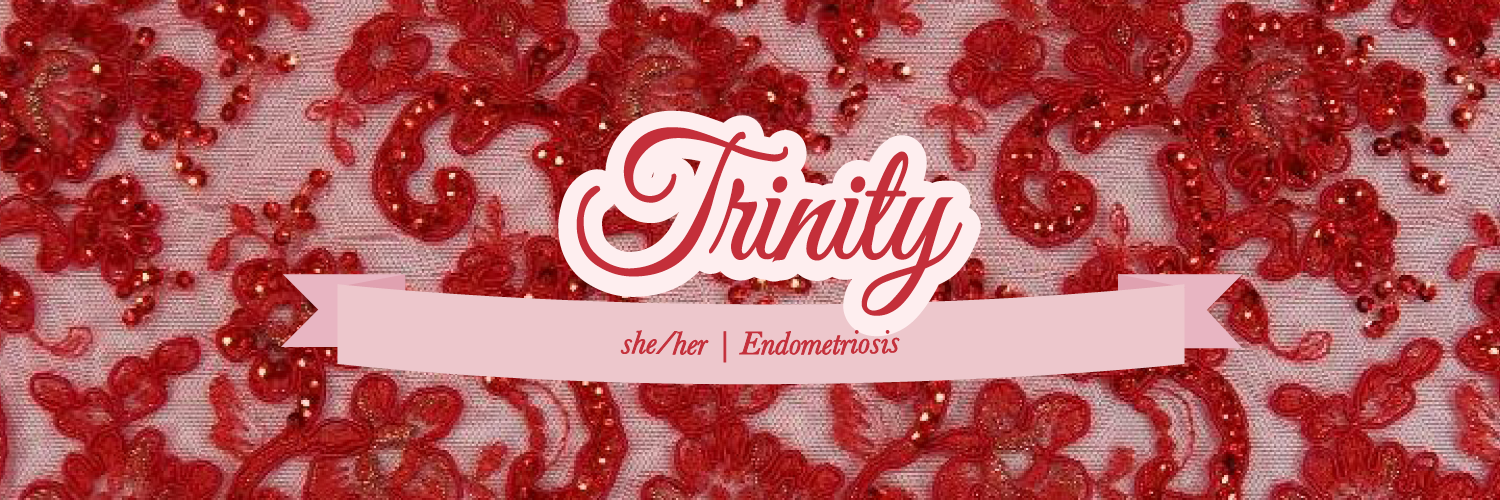CW: This interview discusses medical misogyny and unconsensual medical procedures.
Introduce yourself.
I’m 19 years old and my pronouns are she/her. I have been a pole student at Sky Sirens for three months. My goal is to enjoy feeling good. I’ve never gotten that out of other exercise!
Tell us about your condition.
I have endometriosis. It was really bad when I was 13/14, and went to four different doctors looking for answers. The first doctor told me that I had pelvic inflammatory disease without doing any investigations whatsoever. The second gave me a pap smear without warning me – I passed out and vomited, and that made her angry. My doctor refused to send me to a gynaecologist and insisted that my pain was because I had unprotected sex (which wasn’t true.)
This pattern continued until I was 16, when I fainted at school due to the pain. I went to a different doctor with my mum. When I left the room to take a urine sample, she told my mum that I was lying and I was just having unprotected sex. My mum and I are best friends, and I don’t lie to her about anything.
After a lot of hesitation, I finally got sent to a gynaecologist – and then another, and then another. They didn’t want to hear my experience, because I was so young. They just didn’t care about it. One specialist sent me for an investigative ultrasound, but because of the unconsensual pap smear, I had developed vaginismus, so the ultrasound wasn’t possible. However, the gynaecologist assumed that, as a 16 year old, I just wasn’t cooperating, and that we shouldn’t try other investigative methods.
My mum harassed them enough to convince them to finally do a laparascopy surgery to see if endometrial tissue was growing in other places. They were very hesitant. They didn’t want to do it – so I was put on the bottom of the public waitlist. I should’ve been prioritised; I was passing out every day because I was always bleeding. I once had a period for six months straight, I was anaemic. It was urgent. Then, they left all the pre-operative blood work to the last minute to try and get me to cancel the surgery. I wasn’t given any notice for the blood draws.
After the procedure, my gynaecologist confirmed that I have endometriosis. I didn’t even know what that was – and she didn’t tell me what it meant. She just told me that it was sad, because I am really young. I was told to take the birth control injections – but no one told me that it would kill my sex drive, thin my bones and make me bleed non-stop. In fact, the neurologist I see for my tic disorder is the one who told me about it and how to handle endometriosis.
There is not a lot of pain management for endometriosis, especially a case as severe as my own. My management is combining birth control and opioids. I don’t love taking opioids, but it is one of the only options, and it’s not even that effective for me! My gynaecologist isn’t interested in removal because it is a very risky surgery.
Listen to people with uteruses - they’re tired, they want to be heard.
How does it impact your pole classes?
It impacts my pole classes, but in a good way! When I talk about the pain I am in, I am always told that I should work out and that endorphins will help. This is a very common reaction for people with illnesses that you cant see. I never exercised because I felt so shit. A friend with Polycystic Ovarian Syndrome said that pole helped her with her pain management. When I come in to class in pain, bloated and feeling gross, I feel like I can be in control of my own pain for once. I never felt like that before.
I feel like I can dictate when I am in pain, and how it affects me. I get to say to my pain “hey – get fucked! Let me feel good.”
What do you wish people knew about endometriosis?
I wish young people knew that painful periods are not normal, and something is probably wrong. It is way more common than we think it is. The only reason it is diagnosed more frequently now is because people are now realising that if you’re in pain, you should speak up. As times change, attitudes change too.
If you’re in pain, throwing up and your cramps make you cry – something is wrong. This isn’t normal. Painful periods are too normalised.
There aren’t a lot of studies on endometriosis, but it doesn’t mean that we shouldn’t talk about it. It is more than just a period. It affects you every day - physically and mentally.
Is there anything else you would like to share?
Like mental illness, just because you can’t see it, doesn’t mean it isn’t real. Just because we don’t know as much about it, it doesn’t mean it is any less real.



